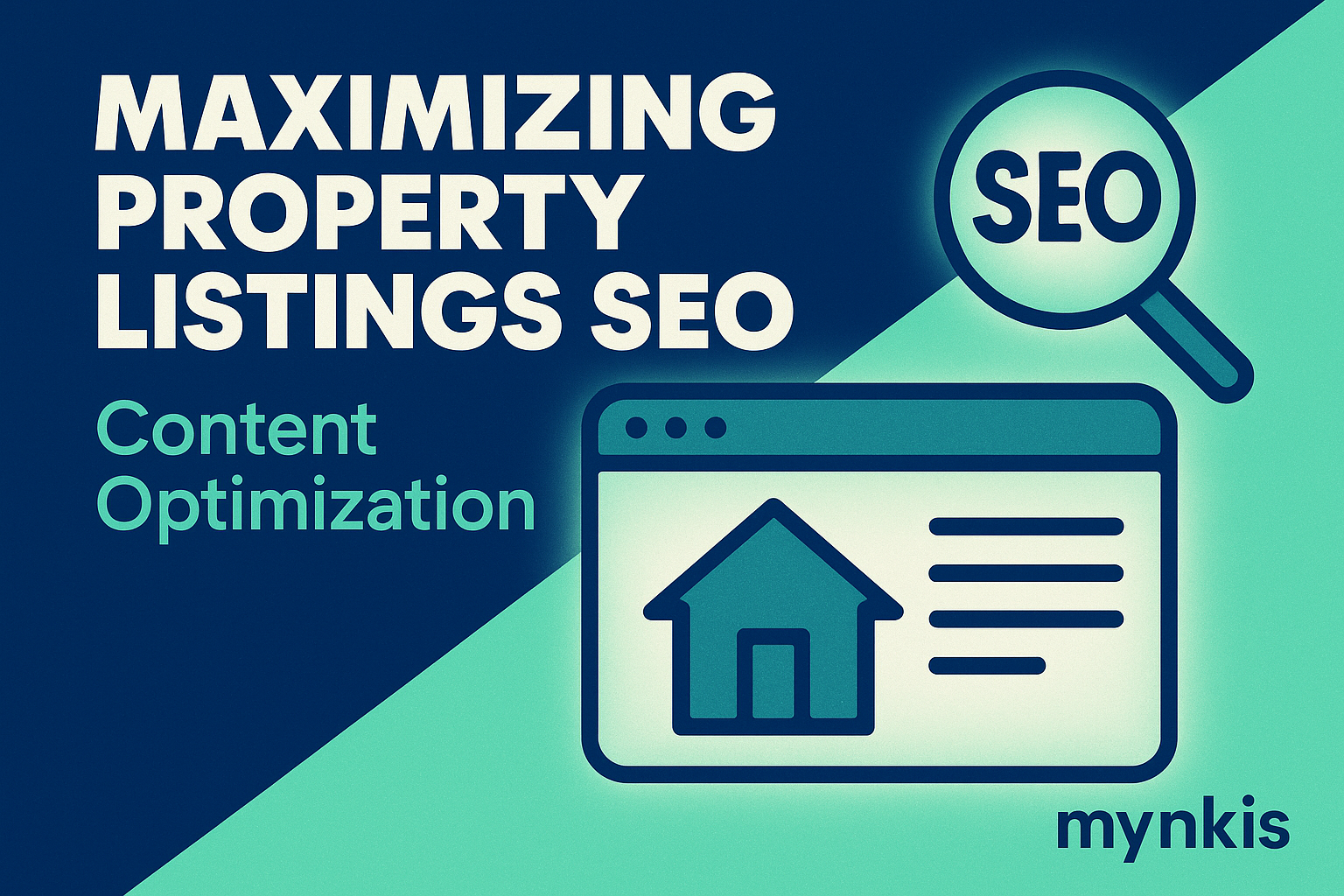Schedule a Demo
Real estate is as much about visibility as it is about location. For brokers, leveraging SEO (Search Engine Optimization) in property listing websites isn't just beneficial—it's essential. I've worked with numerous real estate firms and have seen firsthand how effective SEO strategies drive local queries right to the top of search engine results pages. Your goal? To create content that not only informs potential buyers but also pleases search engines.
Before crafting any content, dive into keyword research. This isn't just about understanding popular search terms but also about figuring out what local buyers are looking for in your region. Tools like Google's Keyword Planner or SEMrush can uncover gems like "luxury condos in San Diego" or "affordable homes in Austin." Tailoring your content around these local queries elevates your listings' relevance and boosts their search rankings.
Incorporating local specifics into your listings transforms them from generic ads into compelling narratives. Think of it like this: if you're targeting buyers in Santa Monica, mention local attractions like the pier or the farmer's market. This approach not only enriches your listings but also aligns perfectly with Google's emphasis on local search, significantly enhancing your SEO performance.
Creating SEO-optimized content goes beyond embedding keywords. It's about crafting a story that informs and engages. From my experience, high-quality articles that answer common real estate questions ('How do I get a mortgage?' or 'What is a closing cost?') serve a dual purpose. They attract potential buyers and establish your authority in the industry. Google rewards such content, often ranking it higher in SERPs (Search Engine Results Pages).
Ever noticed how some search results display rich snippets, including prices, availability, and contact details right on the search page? This magic happens through structured data—a format that search engines can easily read and interpret. By marking up your property listing pages, you directly improve their visibility in SERPs. It's not just about appearing higher; it's about providing searchers with comprehensive information at a glance, something real estate buyers appreciate.
In today's mobile-first world, your website must be not just mobile-friendly but optimized for the best user experience on smaller screens. Mobile optimization directly influences your SEO as search engines favor sites that cater to all users. A slow-loading, unnavigable mobile site? That's a fast track to lower search rankings. Make sure your listings load quickly and are easy to navigate on phones and tablets.
The old saying, "A picture is worth a thousand words," holds much truth in real estate SEO. High-quality photos and walkthrough videos can enhance your listings and improve SEO. Why? Because visual content keeps visitors on your site longer, which search engines interpret as an indicator of valuable content. Include property images that capture light and space effectively, and ensure your videos load quickly to avoid disappointing potential buyers.
Having quality backlinks from reputable real estate blogs or local business listings can catapult your property listing website's rankings. A solid backlink profile signals to search engines that your site is trustworthy and authoritative. Forge partnerships with local businesses, bloggers, and community websites to expand your site's footprint online.
Consistency is key in SEO, especially for your property listings. Regular updates signal to search engines that your site is active and relevant. This can be as simple as updating listings with fresh photos or adjusting property prices. Plus, a blog with the latest market trends or tips for first-time homebuyers will not only keep your site ranking well but also keep visitors coming back for more.
What gets measured, gets managed. Using tools like Google Analytics or Ahrefs, track how well your optimized content performs. Are your local queries climbing the SERPs? Are visitors engaging with your listings? Data-driven insights let you refine your SEO strategy, ensuring every piece of content works harder for you.
At the heart of effective SEO lies user experience. An intuitively designed website that is easy to navigate and read encourages longer visits, leading to better engagement and, ultimately, improved SEO. Remember, your goal is to guide potential buyers effortlessly through your listings, not frustrate them with poor design choices.
SEO is not a set-it-and-forget-it tactic. Search engines evolve, and so must your approach. Stay abreast of the latest Google algorithm updates, and be willing to adapt your content strategies accordingly. Engage with other industry leaders, maybe by attending webinars or joining real estate SEO forums, to continually enhance your knowledge and practices.
While social media signals don't directly impact SEO, they play a crucial role in driving traffic and brand visibility. Sharing your listings on platforms like Instagram or X (Twitter) can lead potential buyers directly to your optimized website, increasing the chances of engagement and possible transactions. It's about creating a seamless journey from social media to your website.
Finally, approach SEO as a long-term investment rather than a quick fix. While you might not see overnight results, consistent efforts in optimizing your listings will pay off by attracting more qualified leads over time. Keep refining your strategies, and over the months, watch your property listing website rise in local searches.
Ensuring transparency in your SEO practices not only builds trust with your audience but also aligns with Google's standards. Clearly mention the sources of your market data or when you last updated your listings. Acknowledge that while SEO can drive more traffic, personal experience and service quality still reign supreme in real estate transactions.
